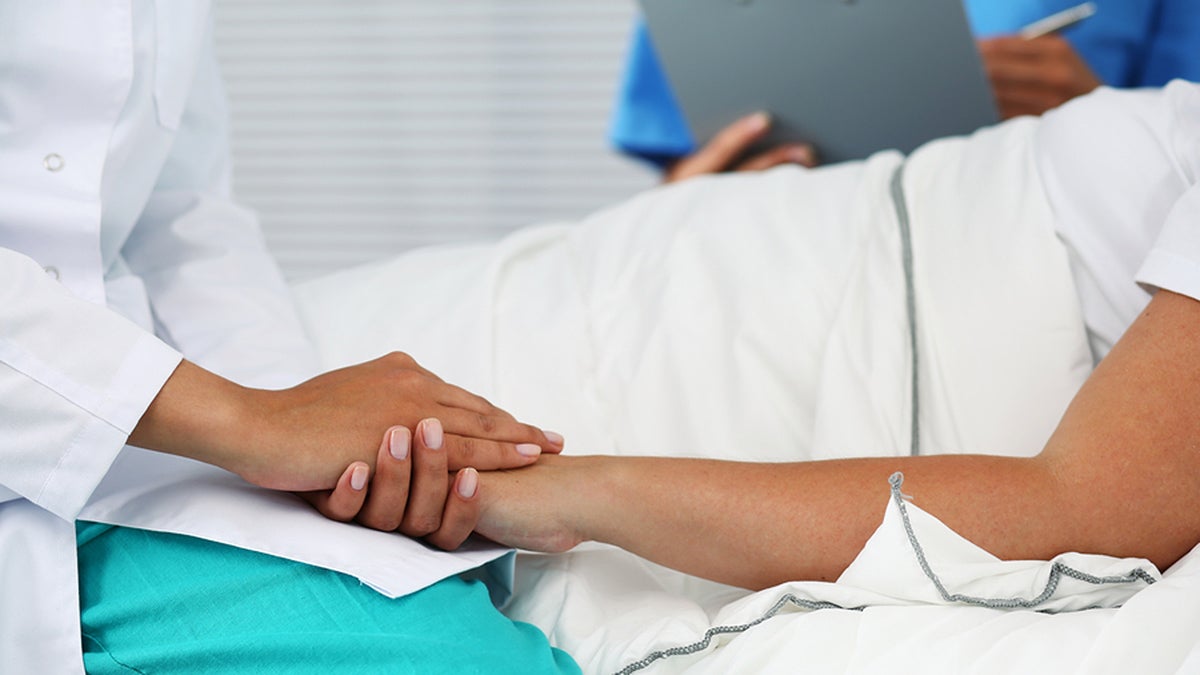Philly prof helps launch nationwide study of empathy among osteopathic med students

(megaflopp/Bigstock)
A Philadelphia professor is concerned about how future patients will fare at the hands of their future doctors.
In a word, Dr. Mohammadreza Hojat is worried about empathy.
Hojat, a research professor in Thomas Jefferson University’s department of psychiatry and human behavior, is troubled by results of some empirical studies on empathy — and whether they could be part of a bigger trend.
He has wondered whether something about the way medical students are trained puts them at risk of losing that critical quality, setting them up for burnout and poorer patient outcomes.
Now, he and collaborators with The American Association of Colleges of Osteopathic Medicine and the Cleveland Clinic have launched a nationwide project aimed at examining this on a broader scale.
The study will be massive with 41 osteopathic schools across the country taking part, adding up to about 85 percent of U.S. osteopathic students.
It is the first national study to measure empathy in medical education, Hojat said. The idea is to evaluate empathy among the incoming classes and track it over time, using his well-known scale and survey called the Jefferson Empathy Scale.
Researchers hope to come up with a national empathy baseline for medical students, one that can be used to better understand how and why this might change during the course of one’s training.
“We are very excited at Rowan to be part of this nationwide study,” said Dr. Thomas Cavalieri, dean of Rowan University’s School of Osteopathic Medicine in New Jersey.
The 186 students starting school there this month will all take the survey.
“This will enable us to assess our training curriculum, so we could build on what we’re doing to be sure that the next generation of physicians are truly compassionate and skillful,” Cavalieri said.
Empathy, Hojat said, is not to be confused with sympathy, “which is more involved in feeling and experiencing patients’ pain and suffering.” That can lead to burnout and exhaustion among physicians.
On the other hand, empathy is a “cognitive attribute involved in understanding of patients’ concerns, experiences, and suffering,” he said.
This is important in medicine. In some smaller empirical studies, Hojat found that current and future doctors who possess high levels of empathy had better self-esteem and were better able to communicate and care for patients. One small study found that diabetes complications were lower among patients treated by empathetic physicians.
In 2009, Hojat zeroed in on medical students at his own institution, Thomas Jefferson University. He found that empathy appeared to drop during the third year of training. That’s a critical year, when students go from the classroom into the actual patient room. Other small studies found this trend as well.
“It’s unexpected that students are losing this in medical school. It seems that cynicism and exclusiveness and snobbery develop in some of the students as they progress,” Hojat said. “We have to do something to prevent this. Improving, enhancing empathy may be one of the approaches that can prevent this.”
While both allopathic and osteopathic medical graduates take the same or similar exams and meet the same or similar licencing standards to practice medicine, Hojat also wondered if there might be differences in the osteopathic educational approach, which proponents say is more holistic. He said he hopes for insight from this new project.
“If the decline can be observed in osteopathic medical schools, that’s another important warning,” Hojat said. “If it is not observed, therefore, one can conclude that the nature of medical education, its curriculum, could make some differences.”
WHYY is your source for fact-based, in-depth journalism and information. As a nonprofit organization, we rely on financial support from readers like you. Please give today.

